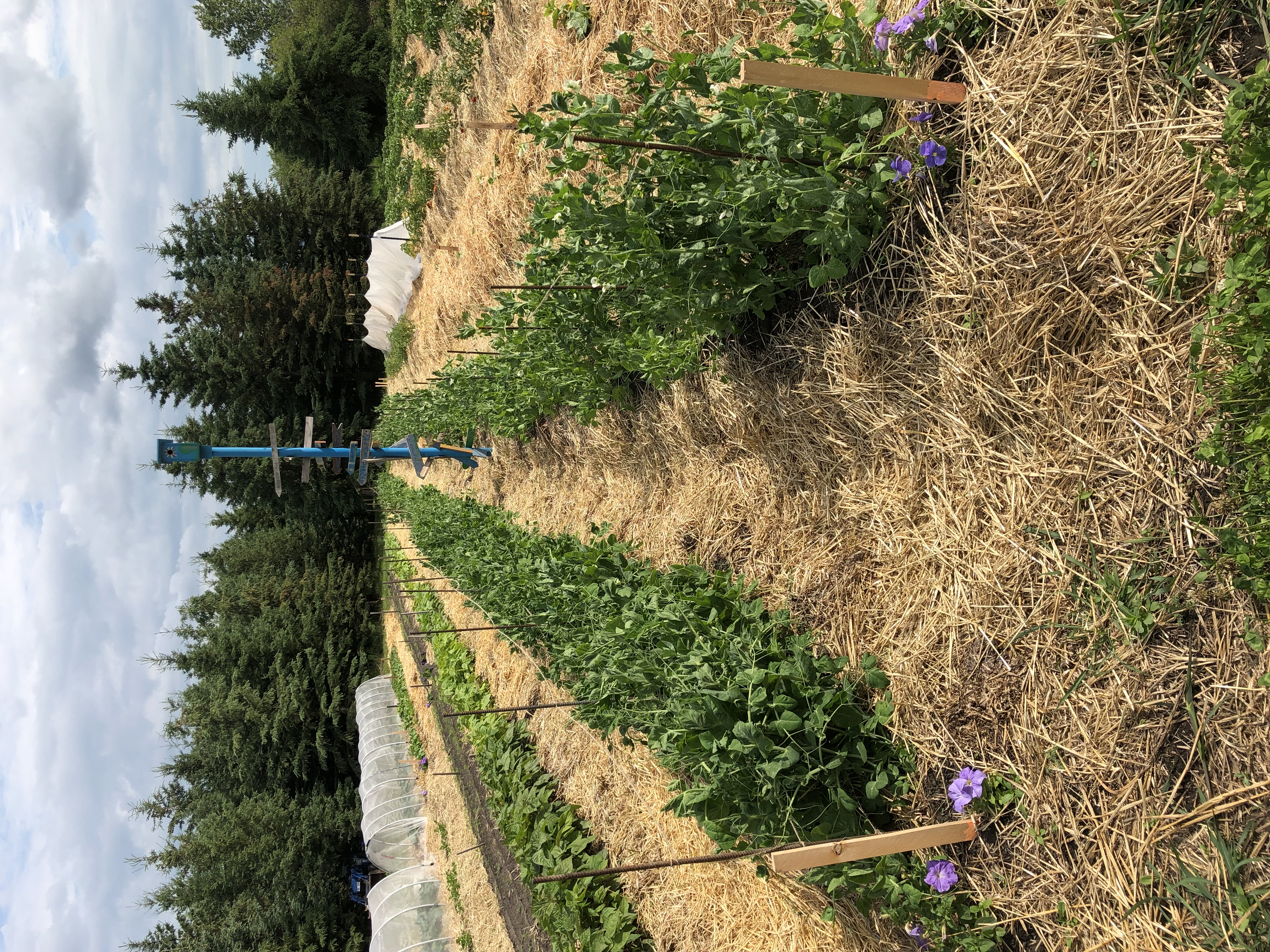
Why should gardeners on the prairies switch to no till gardening?
No till gardening is a system of gardening where the soil is mulched to prevent soil erosion, conserve water and reduce the pressure of weeds. There are many advantages to the no till system including reduced weed pressure, conserving water and improved soil health.
We are perpetuating many of the problems we are fighting in our gardens. By stopping tilling and compacting our soils, we are allowing our soils to build up healthy levels of aggregates that can help to store water for our plants.
When we stop tilling, we are not stirring up more weed seeds to begin germinating near the surface of the soil so we have less weed pressure. In addition, through the use of mulch, we are preventing annual weed seeds from germinating by blocking the sunlight from hitting them in the top layer of our soil.
With the use of mulch, we are protecting our soils from erosion and drying out. We are keeping the moisture in our soil where we need it. We are also improving the pore spaces and aggregate structure in our soils so our soils have a higher water holding capacity. By using mulch, we are reducing the amount of water our garden needs thereby conserving water.
When we stop tilling, we are protecting the fragile soil food web habitat which means our soil organisms can do the work they are designed to do, making organic material in our soil available to plants as nutrients.
By creating permanent planting areas, we are avoiding compacting the soil across our garden space. We are also creating less physical work for ourselves by not having to work the soil or lay out rows each spring.
By composting plant litter, leaves, manure and straw, we can return to our soils the nutrients that our plants have taken out of it. This means our soils are not depleted and in turn, grow healthier.
Through the use of mulch, we are creating a habitat for the beneficial insects that help to keep the bad insects under control. We are preventing diseases in the soil from splashing up on the plants and our vegetables are cleaner.
In summary, when we work with the garden ecosystem, we are reducing the amount of physical work it takes to garden including less tilling and weeding, conserving water, reducing our reliance on pesticides, and increasing the yield of our garden plants as they have consistent water and nutrients available to them. When we increase the yields of our plants, we are decrease our garden size or have enough vegetables to share with a newcomer to Canada or elderly person who can no longer garden for themselves.

